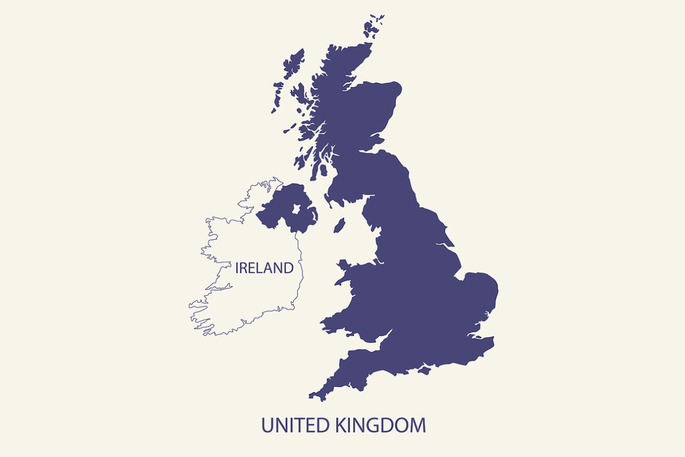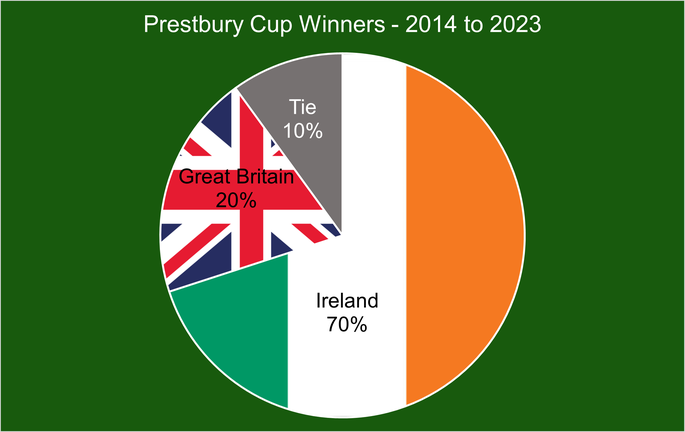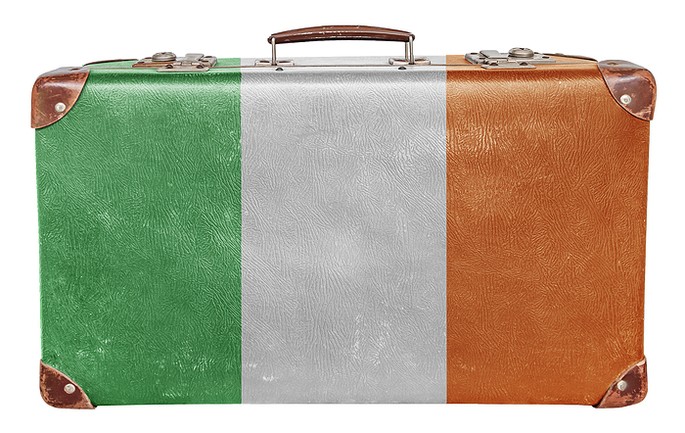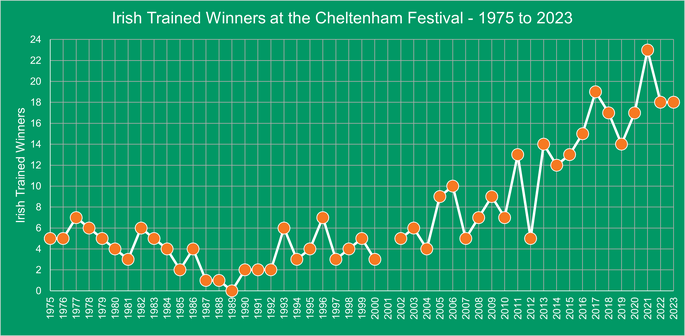 Every year, when the Cheltenham Festival rolls around, the local area braces itself for the ‘Irish invasion’. Ever since Cottage Rake won three Gold Cups in a row at the meeting, there’s been a desire for Irish people to get over and watch as much racing as they can. Obviously Irish trained horses and Irish trainers are just as keen to be involved in the National Hunt’s biggest meeting of the season, leading to something of a battle between the British and the Irish trainers involved.
Every year, when the Cheltenham Festival rolls around, the local area braces itself for the ‘Irish invasion’. Ever since Cottage Rake won three Gold Cups in a row at the meeting, there’s been a desire for Irish people to get over and watch as much racing as they can. Obviously Irish trained horses and Irish trainers are just as keen to be involved in the National Hunt’s biggest meeting of the season, leading to something of a battle between the British and the Irish trainers involved.
This ‘battle’ was made somewhat official in 2014 with the advent of the Prestbury Cup. Named in honour of a local village, the Prestbury Cup is awarded to either Britain or Ireland, depending on which country manages to achieve the most winners during the Festival. It is presented on the final day of the meeting and although it is competed over with good grace, there’s no doubt that all of the trainers want to get as many wins on the board as possible in the search for glory.
How Many Prestbury Cups Have Great Britain and Ireland Won?
Between 2014 and 2023, Ireland have won the Prestbury Cup seven times, with Great Britain winning twice. The 2019 Prestbury Cup was a 14-14 tie.
In this time there have been 278 races with 166 Irish trained winning horses, 111 British trained winners and one French trained winner.
The Creation Of The Prestbury Cup

The phenomenal success of Irish trainers such Willie Mullins and Gordon Elliot at the Cheltenham Festival during the 2010s led to the idea behind the Prestbury Cup. It’s not that the British and the Irish trainers didn’t keep track of who was winning the most races, it’s just that it wasn’t made into an official competition until the battle became somewhat fairer. So it is that the Prestbury Cup was created in 2014, running each year with the winner declared when they reach fifteen winners or more.
Of course, back when the Cup was created there were only twenty-seven races run during the Festival. Consequently, a country only needed to notch up fourteen winners in order to secure the Prestbury Cup. The Cup’s inauguration came the year after Irish trainers had more winners to their name than their British opponents for the first time in 2013, making it a timely addition to the meeting.
The Cup itself is sealed with Cheltenham turf each year, meaning that the winning team takes a piece of Prestbury Park home with them when they win. The battle for the Cup is a hard-fought one, with local papers in both Ireland and the United Kingdom focussing on the horses and trainers that are likely to be able to offer success in the Prestbury Cup each time the Festival rolls around.
Prestbury Cup Results

This section will be updated every year as the winner of the Prestbury Cup becomes clear. Though it has only been taking place since 2014, there’s still plenty of information available to guide you towards making a decision if you’re thinking of placing a bet on the outcome of the competition. It’s just one more thing to research before you turn to your bookmaker of choice as the horses and trainers head to Prestbury Park.
Prestbury Cup Final Standings – 2014 to 2023
| Year | Winner | Ireland | Great Britain |
|---|---|---|---|
| 2023 (28 races) | Ireland | 18 wins | 10 wins |
| 2022 (28 races) | Ireland | 18 wins | 10 wins |
| 2021 (28 races) | Ireland | 23 wins | 5 wins |
| 2020 (28 races) | Ireland | 17 wins | 10 wins |
| 2019 (28 races) | Tie | 14 wins | 14 wins |
| 2018 (28 races) | Ireland | 17 wins | 11 wins |
| 2017 (28 races) | Ireland | 19 wins | 9 wins |
| 2016 (28 races) | Ireland | 15 wins | 13 wins |
| 2015 (27 races) | Great Britain | 13 wins | 14 wins |
| 2014 (27 races) | Great Britain | 12 wins | 15 wins |
| Total (278 races) | 166 wins | 111 wins |
It’s fair to say that the Irish have had the rub of the green so far in the Prestbury Cup, with either Willie Mullins or Gordon Elliot the Cheltenham Festival Champion Trainer in each year since the contest officially began. Any team with Mullins and Elliot on its side is always likely to do well when it comes to notching up winners at Cheltenham.

Irish Winners at Cheltenham Before the Prestbury Cup

Whilst it’s likely that the Irish would always have fallen in love with the Cheltenham Festival for one reason or another, it certainly helped that Cottage Rake won the meeting’s most prestigious event, the Gold Cup, three times in succession. Between 1948 and 1950, no horse could get near the Irish-trained bay gelding. It paved the way for Irish horses to enter the races year after year, determined to prove they were as strong as their British counterparts.
Away from Prestbury Park, the Irish Cesarewitch and the King George VI Chase were the only other major wins of Cottage Rake’s career, giving the impression that it was a horse that just loved the Cheltenham turf and the competition that the Gold Cup presented. It was a breakthrough period, with the Irish runners flooding Gloucestershire every March from then on, with trainers from the Emerald Isle keen to prove their worth.
Irish Success A Modern Phenomenon
If you look back to the 1989 Cheltenham Festival then you will see a meeting that boasted no Irish trained winners whatsoever. Even the Festivals either side of it weren’t that much better, with a mere 5.56% of Irish winners being on the scoreboard in 1988 and 11.11% in 1990. The Irish might have had a love affair with Prestbury Park since 1948, but it took a while before that began to manifest itself in the winner’s enclosure.

It’s fair to say, therefore, that Irish trainers being so successful during Cheltenham week is a relatively new phenomenon. The 1980s and 1990s weren’t exactly filled with tales of Irish winners, with the turn of the millennium seeing the number that came over the water to win the biggest prizes increasing slightly. Indeed, it’s only really been during the 2010s that it’s become common for more Irish winners than British ones.
